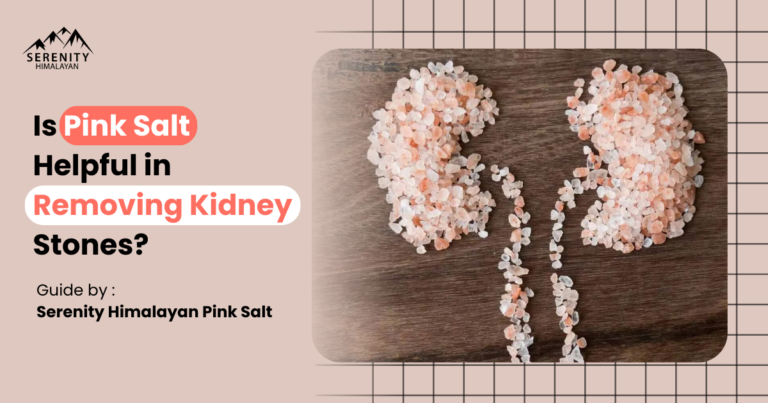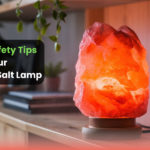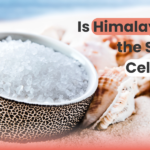Introduction
As natural remedies gain popularity, many people are turning to alternative health solutions for common ailments. Among these is the use of pink salt, particularly Himalayan pink salt, which is often touted for its various health benefits. One claim that has piqued interest is whether pink salt can help remove kidney stones—a painful condition that affects many people worldwide. In this article, we will explore the validity of this claim and provide a clear answer based on available evidence.
Understanding Kidney Stones
What Are Kidney Stones?
Kidney stones are hard deposits made of minerals and salts that form inside your kidneys. These stones vary in size and composition, with the most common types being calcium oxalate stones, uric acid stones, struvite stones, and cystine stones. They form when your urine contains more crystal-forming substances—such as calcium, oxalate, and uric acid—than the fluid in your urine can dilute. Factors like dehydration, a diet high in certain substances, and genetic predisposition can increase your risk of developing kidney stones.
Symptoms of Kidney Stones
Kidney stones can cause excruciating pain as they pass through the urinary tract. Common symptoms include severe pain in the side and back, below the ribs, pain during urination, pink, red or brown urine, nausea, vomiting, and persistent urge to urinate. These symptoms often prompt individuals to seek immediate medical attention. Early detection and treatment are crucial to avoid complications.
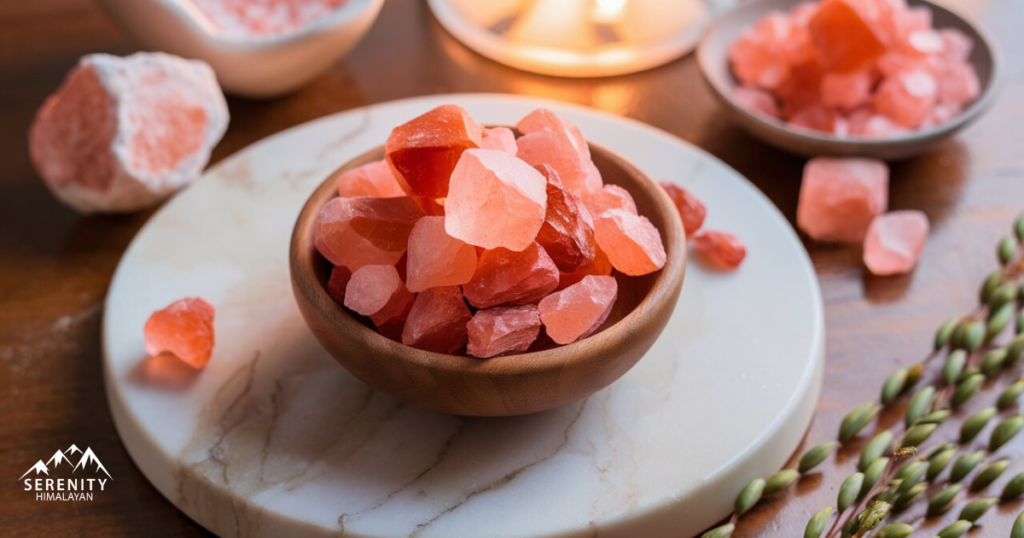
Pink Salt: Composition and Health Claims
What Is Pink Salt?
Himalayan pink salt is a type of rock salt mined from the Khewra Salt Mine in the Punjab region of Pakistan. It is known for its distinctive pink color, which results from trace minerals such as magnesium, potassium, and calcium. Unlike regular table salt, which is heavily processed and stripped of many of its natural minerals, pink salt is often marketed as a healthier alternative due to its mineral content and natural state.
Health Claims Surrounding Pink Salt
Proponents of pink salt claim that it offers numerous health benefits, including improved respiratory health, balanced pH levels, better digestion, and detoxification. Some also believe that the minerals in pink salt can support kidney health by helping to dissolve kidney stones or prevent their formation. However, these claims are largely anecdotal, and it’s important to examine the scientific evidence before relying on pink salt for such purposes.
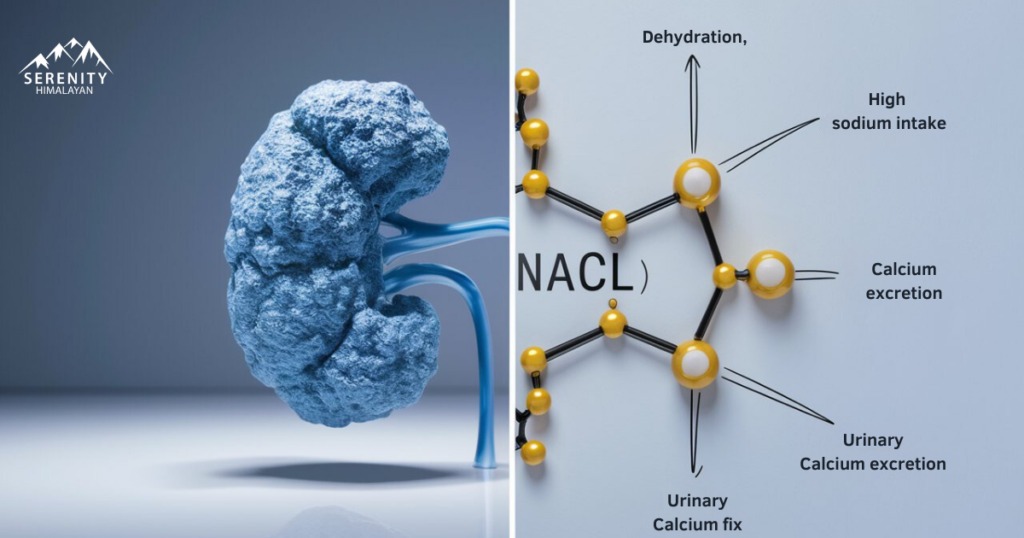
The Science Behind Salt and Kidney Stones
How Salt Affects Kidney Function
Sodium, the primary component of all salts, plays a crucial role in bodily functions, including fluid balance, nerve transmission, and muscle function. However, excessive sodium intake can have adverse effects on the kidneys. High sodium levels can lead to increased calcium in the urine, which is a risk factor for kidney stone formation. This is why doctors often recommend reducing salt intake to prevent kidney stones, particularly for those prone to calcium oxalate stones.
Can Pink Salt Prevent or Dissolve Kidney Stones?
While pink salt contains less sodium than table salt, it is still a significant source of sodium. No scientific studies specifically support the idea that pink salt can prevent or dissolve kidney stones. The minerals in pink salt, while beneficial in other aspects, do not have proven efficacy in treating kidney stones. Therefore, relying on pink salt as a remedy for kidney stones is not supported by scientific evidence and could be misleading.

Expert Opinions and Medical Advice
What Do Doctors Say About Pink Salt and Kidney Stones?
Healthcare professionals generally agree that while pink salt can be a part of a balanced diet, it should not be considered a treatment for kidney stones. Instead, doctors emphasize the importance of a low-sodium diet, proper hydration, and medical treatments for preventing and managing kidney stones. Consulting a healthcare provider before trying any new remedy, including pink salt, is essential to ensure it is safe and effective for your specific condition.
Alternative Natural Remedies for Kidney Stones
There are other natural remedies with more substantial evidence supporting their use in kidney stone management. These include increasing water intake, consuming lemon juice (which contains citrate that can prevent stone formation), and incorporating foods high in fiber and low in oxalate. These alternatives, combined with medical advice, offer a more reliable approach to managing kidney stones compared to pink salt.
Practical Tips for Kidney Stone Prevention
Dietary Recommendations
To prevent kidney stones, focus on a diet that is low in sodium and oxalate. Foods rich in calcium, such as dairy products, can help bind oxalate in the intestines and reduce its absorption, thereby lowering the risk of stone formation. Drinking plenty of water—aiming for at least eight glasses a day—helps dilute the substances in urine that lead to stones.
Lifestyle Changes
Adopting a healthy lifestyle is crucial for preventing kidney stones. Regular exercise, maintaining a healthy weight, and avoiding excessive consumption of salt, sugars, and animal proteins can reduce your risk. If you choose to use pink salt, do so sparingly and as part of a broader, balanced diet.
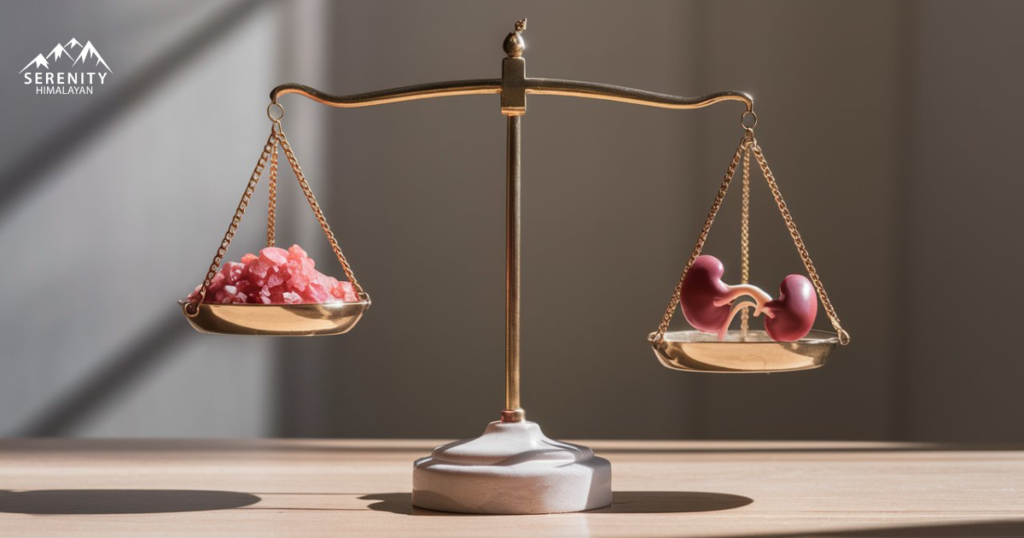
Conclusion
Recap of Findings
While Himalayan pink salt is often praised for its potential health benefits, there is no scientific evidence to support the claim that it can help remove or prevent kidney stones. Excessive salt intake, regardless of the type, is more likely to contribute to kidney stone formation rather than prevent it.
Final Verdict
The most effective way to manage kidney stones is through proper hydration, a balanced diet, and following medical advice. While pink salt can be part of a healthy diet, it should not be relied upon as a remedy for kidney stones.
If you are experiencing symptoms of kidney stones or have a history of kidney stones, consult with a healthcare professional to develop a personalized plan for prevention and treatment. For more information on managing kidney stones and other natural remedies, explore our additional resources.
FAQs
Can I use pink salt if I have kidney stones? Yes, but it should be used in moderation as part of a low-sodium diet.
How much pink salt is safe to consume daily? The recommended daily intake of sodium is about 2,300 mg, which is roughly one teaspoon of salt. This applies to all types of salt, including pink salt.
What are other natural remedies for kidney stones? Increasing water intake, consuming citrus juices, and following a balanced diet low in oxalate are effective natural remedies for preventing kidney stones.







